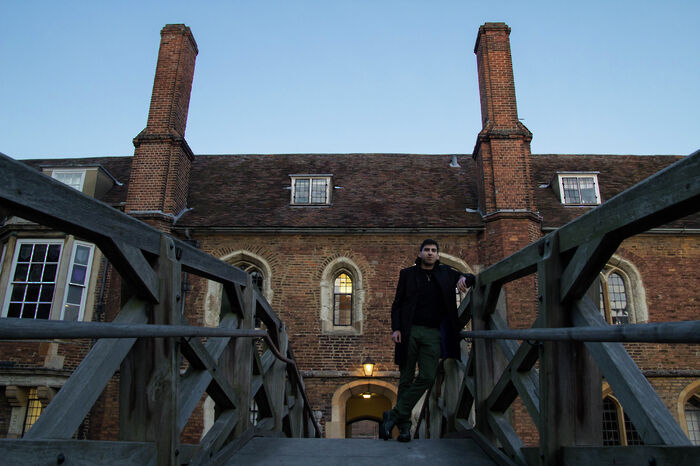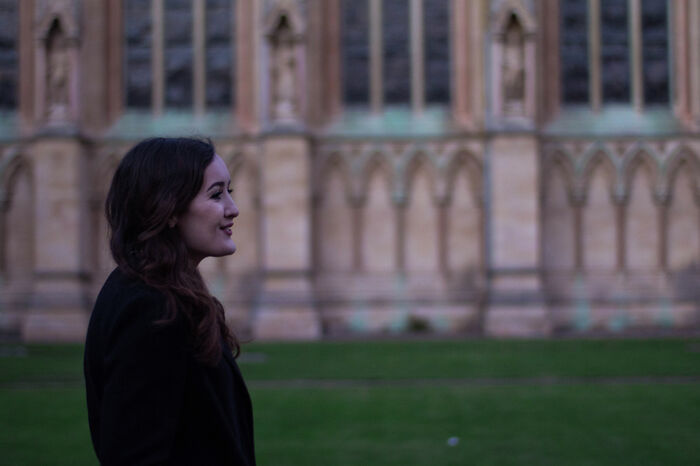Cambridge will stop telling intermitting students they are banned from the city
CUSU officers worked in conjunction with the University to update guidance for ‘disregarding terms’, after a Varsity report revealed difficulties faced by students who take a break from studies

The University has revised official guidance for intermitting students which suggested they should not enter Cambridge, in the wake of lobbying by CUSU and a Varsity report which revealed serious problems with the process.
Guidance on the University’s website now says: that students “may but are not expected to remain in Cambridge for the period of intermission”, dropping previous wordings which suggested students should not enter the city during their break from studies – a rule which had been strongly criticised by campaign groups.
CUSU president Daisy Eyre welcomed the change, saying “I think it’s great that students are now clear that they can come to Cambridge while intermitting. No college has the right to tell their students where they can and cannot go.”
Intermission, officially known as ‘disregarding terms’, is the process by which students take a break from studies. In the majority of instances, this break is taken to recover from issues with physical or mental health.
Last year, an investigation by Varsity showed the scale of intermission and revealed wide disparities in how students felt they were treated during the intermissions process. It found that even as the number of intermissions was rising, many senior tutors were failing to adequately support intermitting students, that many students were told they were not allowed in the city or their college, and some students were made to pass tests in order to return to their studies.
Reforming the process was a key focus of last year’s CUSU sabbatical team, with Sophie Buck, the welfare officer, and Jessica Wing, the disabled students’ officer, re-drafting guidance for intermitting students, and lobbying for change on University welfare committees.
In November 2016, citing Varsity’s investigation and a report in The Guardian which focused on rustication, the equivalent process at the University of Oxford, the central Welfare and Finance Committee launched a working group to examine issues surrounding intermission, of which Buck and Wing were members.
When the Working Group was formed, the University’s official FAQ page on intermissions answered the question ‘Can I stay in Cambridge when I am on intermission?’ simply with ‘You are not expected to be in Cambridge’. A Varsity investigation found this guidance was often being enforced in its strictest interpretation, with students routinely barred from entering colleges and University buildings, and many advised not to visit the city at all.
Since then, the wording has undergone at least two changes. Early this year, it was changed to read: “You are not expected to remain in Cambridge for the period of intermission. You should not use College facilities during intermission, nor engage in social activities within College, without the express permission of the College.”

In July, it changed again, with the first sentence altered to say: “You may but are not expected to remain in Cambridge for the period of intermission” – the first time official guidance has explicitly said students can be in the city.
The full guidance, on the Senior Tutors’ Committee website, now says: “During intermission, you will remain free to visit the city of Cambridge and to meet up with College/University friends if you mutually wish to do so.
Got a story for us?
Seen something you think Varsity should be talking about? Contact our News team at news@varsity.co.uk.
“However, intermission is intended to relieve you of any academic disadvantage, rather than offering an opportunity for you to gain an academic advantage, and is granted on the basis that you are not able to study. As such, in all but very exceptional cases, permission to intermit will require you to leave your College residence. Furthermore, you will not be permitted to use/access your College’s or the University’s facilities/premises, even for social visits or events, during your break from study without prior permission from your College.”
Newly-released minutes of the Welfare and Finance committee reveal the official discussions behind the alterations, and show senior tutors accepting the working group’s suggested changes. Noting “ambiguities” about whether students were allowed to use University facilities, and concerns about the fairness of setting academic tests for returning students, the revised guidance was endorsed by the committee.
The minutes note: “it was intended for the guidance documents to be added to the Senior Tutors website and made available as a resource for Colleges to use as templates to develop guidance documents for their own tutors and students”, suggesting that the handling of intermissions may continue to vary between colleges.
There is no apparent overall change to guidance about when returning students may be set academic tests. The University has defended the tests, which were set by the majority of colleges the working group surveyed, as necessary to determine whether students are prepared to return.

Buck welcomed the changes, telling Varsity: “It’s great to see that the University has updated the intermission guidance published on their website. Explicitly stating that intermitting students are allowed in Cambridge should mean that intermitting students are more confident in their abilities to remain in and visit Cambridge, like a member of the public would be able to, and that outdated counter-beliefs can more easily be corrected. I hope that increased clarity in general in the revised intermission guidance also eases the intermission process.”
“I am pleased about the effect CUSU has managed to have in amplifying students’ concerns with intermission,” she added, “and in achieving changes in guidance to address these. I look forward to hearing from students that these changes in guidance have had real effects.”
Eyre echoed Buck and said that continued reforms to intermission processes were a focus of this year’s sabbatical team.
“Last year, CUSU officers worked hard with the University to make the first steps on clarifying and improving the intermission experience for students,” Eyre said. “Previously, the guidelines on whether students could stay in Cambridge during intermission were unclear and also varied a lot between colleges.”
READ: CUSU’s guidance on intermissions
CUSU has produced new guidance for students who have to take a break from studies. Read the full document here, or on the Disabled Students’ Campaign website.
“CUSU believe that students absolutely must be permitted to spend time in Cambridge during intermission and hope that any student whose college implied otherwise would get in touch,” she continued. “Beyond this, we believe that in most cases students should be permitted to participate in college social activities, because without this permission, students could become even more isolated from their college community.”
She said that CUSU sabbs have been trying to put a paper through Cambridge’s committee structure calling for the establishment of an ‘intermission forum’ in which “key figures in college, support services and CUSU officers (representing experiences of intermitting students) could come together to discuss the issues students face in intermission, and share best practice”.
“Changing intermission in Cambridge requires wholesale cultural change and this is what we are pushing for this year,” she said.
As list of support services for students seeking help with mental health issues can be found here.
Investigating Intermissions
 Comment / Cambridge’s tourism risks commodifying students18 April 2025
Comment / Cambridge’s tourism risks commodifying students18 April 2025 News / Cambridge student numbers fall amid nationwide decline14 April 2025
News / Cambridge student numbers fall amid nationwide decline14 April 2025 News / Greenwich House occupiers miss deadline to respond to University legal action15 April 2025
News / Greenwich House occupiers miss deadline to respond to University legal action15 April 2025 Comment / The Cambridge workload prioritises quantity over quality 16 April 2025
Comment / The Cambridge workload prioritises quantity over quality 16 April 2025 Sport / Cambridge celebrate clean sweep at Boat Race 202514 April 2025
Sport / Cambridge celebrate clean sweep at Boat Race 202514 April 2025








